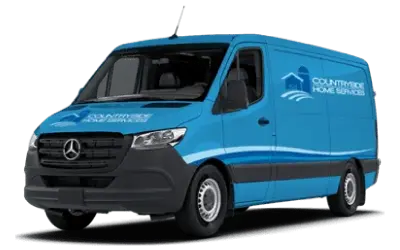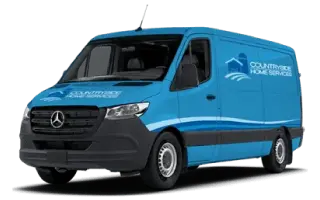





When it comes to providing hot water for your home, choosing the right water heater is essential for both comfort and efficiency. Two of the most common types of water heaters are traditional tank water heaters and tankless (on-demand) water heaters. Each type has advantages and disadvantages, and understanding these differences can help you make an informed decision that best suits your household’s needs.
In this blog post, we’ll explore the key differences between tank and tankless water heaters, their pros and cons, and what factors to consider when deciding which type is right for your home.
Tank water heaters are the traditional type of water heater found in many homes. These systems consist of a large tank that stores a set amount of hot water, typically ranging from 30 to 80 gallons. The water in the tank is heated by gas or electricity and kept at a constant temperature until it is needed.
When you turn on a hot water tap, water is drawn from the top of the tank, and cold water is fed into the bottom to be heated. Because the water is preheated and stored, it is readily available when needed, but the supply is limited to the size of the tank.
Tankless water heaters, also known as on-demand water heaters, do not store hot water. Instead, they heat water directly as it flows through the unit, using a gas burner or an electric element. When you turn on a hot water tap, cold water travels through the unit, rapidly heating it to the desired temperature before being delivered to your faucet.
Because tankless systems heat water on demand, they can provide a continuous supply of hot water, but the unit’s capacity may limit the flow rate.
1. Lower Initial Cost: Tank water heaters generally have a lower upfront cost than tankless systems. This makes them a more budget-friendly option for many homeowners.
2. Simpler Installation: The installation process for a tank water heater is typically more straightforward, especially if you’re replacing an existing tank system. This can result in lower installation costs and quicker setup.
3. Reliable Hot Water Supply: Since tank water heaters store a large volume of hot water, you can access hot water immediately, even during peak usage times. This is particularly beneficial for larger households where multiple appliances and fixtures may be using hot water simultaneously.
4. Easier Maintenance: Tank water heaters are often easier and less expensive to maintain. Routine tasks like flushing the tank to remove sediment buildup are relatively simple, and repairs tend to be less costly than tankless systems.
1. Energy Inefficiency: Tank water heaters are less energy-efficient because they continuously heat and reheat the water in the tank to maintain a set temperature, even when hot water is not being used. This process, known as standby heat loss, can lead to higher energy bills.
2. Limited Hot Water Supply: The amount of hot water available is limited to the size of the tank. Once the hot water is depleted, you’ll need to wait for the tank to refill and reheat, which can be inconvenient, especially during high-demand periods.
3. Larger Footprint: Tank water heaters are bulky and require significant space for installation. This can be a drawback in homes with limited space, such as apartments or small utility rooms.
4. Shorter Lifespan: Tank water heaters generally have a shorter lifespan, typically lasting around 10-15 years. Over time, sediment buildup and constant heating cycles can reduce the efficiency and effectiveness of the unit.
Propane is another key fuel source we provide, known for its clean-burning properties and versatility. It is used for heating, cooking, and even as an energy source for generators. Countryside’s propane delivery service is tailored to meet the needs of both residential and commercial customers, offering flexibility and peace of mind.
1. Energy Efficiency: Tankless water heaters are more energy-efficient because they only heat water when needed. This eliminates standby heat loss and can result in significant energy savings, especially for households with lower hot water usage.
2. Endless Hot Water Supply: Because tankless systems heat water on demand, they can provide a continuous supply of hot water. This is ideal for households with high hot water demand, such as those with multiple bathrooms or large families.
3. Space-Saving Design: Tankless water heaters are much smaller and more compact than tank systems. They can be mounted on walls or installed in small spaces, making them a great option for homes with limited space.
4. Longer Lifespan: Tankless water heaters generally have a longer lifespan than tank systems, often lasting 20 years or more. This can make them a better long-term investment.
1. Higher Initial Cost: The upfront cost of a tankless water heater is typically higher than that of a tank system. This includes both the cost of the unit and the installation, which may require upgrades to your home’s electrical or gas system.
2. Limited Flow Rate: While tankless water heaters can provide endless hot water, their flow rate may be limited by the unit’s capacity. This means that if multiple fixtures or appliances are using hot water simultaneously, the system may struggle to keep up, resulting in lower water pressure or inconsistent temperatures.
3. Complex Installation: Installing a tankless water heater can be more complex and time-consuming, especially if you’re replacing a tank system. The installation may require modifications to your home’s plumbing, electrical, or gas lines, which can increase the overall cost.
4. Potential for “Cold Water Sandwich”: Some tankless systems may produce a phenomenon known as the “cold water sandwich,” where cold water briefly flows out of the tap before hot water arrives. This can be a minor inconvenience, especially in larger homes where the water heater is located far from the point of use.
Choosing between a tank and tankless water heater depends on several factors, including your hot water needs, budget, available space, and long-term energy goals. Here are some considerations to help you decide:
- You have a larger household with high simultaneous hot water demands.
- Initial cost and ease of installation are your primary concerns.
- Space is not an issue and you have room for a larger unit.
- You prefer a system with a simpler installation and maintenance process.
- Energy efficiency and lower long-term operating costs are your top priorities.
- You have limited space and need a compact, wall-mounted unit.
- You want a system that provides endless hot water without running out.
- You’re willing to invest more upfront for long-term savings and a longer lifespan.
Both tank and tankless water heaters offer unique advantages and disadvantages, and the right choice for your home depends on your specific needs and preferences. Tank water heaters provide reliable hot water with a lower initial cost, while tankless systems offer greater energy efficiency, space savings, and a continuous hot water supply.
At Countryside, we’re here to help you navigate your options and choose the water heater that best suits your home and lifestyle. Our team of experienced technicians can assess your needs, explain the benefits of each type of system, and provide professional installation and maintenance services to ensure your water heater operates efficiently for years to come.
Contact us today to schedule a consultation and learn more about our water heater services. Whether you choose a tank or tankless system, Countryside can keep your home’s hot water flowing reliably and efficiently.

